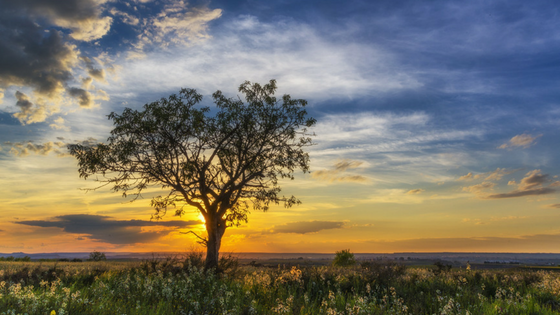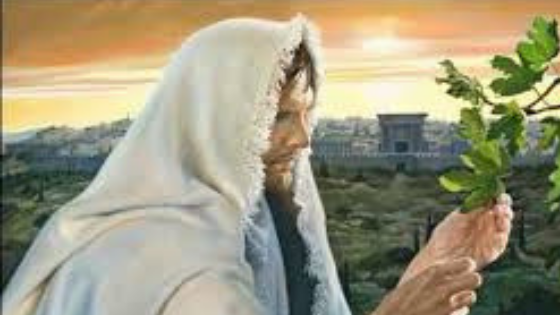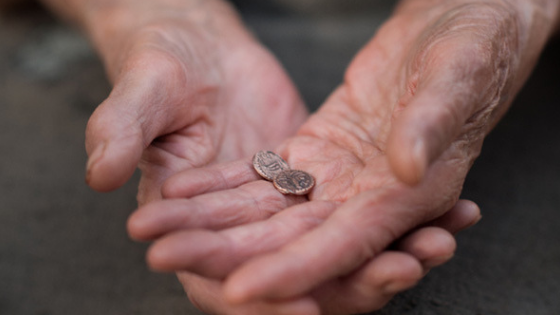REFLECTIONS ON THE READINGS FOR THE
11th SUNDAY OF THE YEAR, 17TH JUNE 2018 CYCLE B
Ezekiel 17:22-24; Psalm 91:2-3,13-16; 2 Corinthians 5:6-10; Mark 4:26-34
[su_button url=”https://drive.google.com/file/d/1eCrrGnbJRJYX_wwMjWDhwSfYQjBcULfX/view?usp=sharing” target=”blank” style=”flat” icon=”icon: cloud-download” icon_color=”#ffffff”]Download[/su_button]
 Our readings today speak of the growth of God’s kingdom – and our dependence on God for that growth. The gospel reading from Mark is taken from his central teaching section, concerning the parables of the kingdom of God. Many of them involve miraculous appearance and inexplicable growth as a metaphor for the kingdom: “the seed is sprouting and growing; how, he does not know.” Great trees, typically cedars, were symbols of powerful empires – as we see in our reading from Ezekiel 17 – but mustard plants are invasive shrubs that grow to be a few feet high. Like many other parables, this one is satirical and humorous: the kingdom is like a scrubby, invasive bush! It suggests that “the kingdom of God” starts from a very small beginning, but grows miraculously.
Our readings today speak of the growth of God’s kingdom – and our dependence on God for that growth. The gospel reading from Mark is taken from his central teaching section, concerning the parables of the kingdom of God. Many of them involve miraculous appearance and inexplicable growth as a metaphor for the kingdom: “the seed is sprouting and growing; how, he does not know.” Great trees, typically cedars, were symbols of powerful empires – as we see in our reading from Ezekiel 17 – but mustard plants are invasive shrubs that grow to be a few feet high. Like many other parables, this one is satirical and humorous: the kingdom is like a scrubby, invasive bush! It suggests that “the kingdom of God” starts from a very small beginning, but grows miraculously.
The reading from Ezekiel – a prophet of the exile – is the conclusion to chapter 17, which is an extended metaphor about the disastrous results of the people seeking help from Egypt, one of the great political powers of the day, having fallen foul of the other great power, Babylon. God’s covenant had been broken and now God adds God’s own ending to the story: God will take a sprig from the top of the cedar and plant it on a high mountain of Israel and it will flourish, demonstrating God’s sovereignty. It’s an idyllic ending, unexpected in the midst of oracles of punishment, and promises restoration. Like the gospel story of miraculous, unexpected growth, Israel will indeed thrive under an upright ruler of the house of David: “Every tree of the field will learn that I, the Lord, am the one who stunts tall trees and makes the low ones grow …”
There is a similar message of hope and growth, based on righteous living according to God’s covenant, in Psalm 91: “The just will flourish like the palm-tree and grow like a Lebanon cedar./Planted in the house of the Lord/they will flourish in the courts of our God”. Lebanon cedars, proverbially stately trees with deep roots, are an obvious antithesis to the metaphor of ephemeral grass used to represent the wicked. The contrast is like that of Psalm 1, between the righteous as a tree planted by waters and the wicked as chaff blown by the wind. The psalm concludes by picking up the call “to tell” from the beginning, so that it begins and ends by affirming what a good and fitting thing it is to tell of God’s greatness, for “the Lord is just./In God, my rock, there is no wrong”.
Mark places the two kingdom parables together as a pair, possibly because he understands them both to be conveying the same message of assurance of the coming of God’s kingdom. The early Christian communities may have taken comfort from them in the belief that, though response to the gospel was often indiscernible, God was in control and they could be confident that the harvest would eventually appear. Paul, in the Letter to the Corinthians, also expresses confidence in the future. His dilemma here is reminiscent of his Letter to the Philippians, where he says, “Life to me … is Christ, but then death would bring me something more; but then again, if living in this body means doing work which is having good results – I do not know what I should choose” (2:21,22). The enigmatic relationship between bodily existence and eternal life is also suggested in the Jewish tractate of the Mishnah, “Sayings of the Fathers”: “Better is a single moment spent in penitence and good deeds in this world than the whole of the world-to-come. And better is a single moment of inner peace in the world-to-come than the whole of a lifetime spent in this world” (Avot 4:17). But what is certain is our knowledge of God’s “love in the morning” and God’s “truth in the watches of the night.” For that “It is good to give thanks to the Lord”.
This week’s Sunday Gospel Commentary was prepared by
Sr Margaret Shepherd, NDS, London, UK
margaretashepherd@gmail.com
[Copyright © 2018]
………………………………………………………………
PLEASE NOTE: The weekly Gospel commentaries represent the research and creative thought of their authors, and are meant to stimulate deeper thinking about the meaning of the Sunday Scriptures. While they draw upon the study methods and sources employed by the Bat Kol Institute, the views and conclusions expressed in these commentaries are solely those of their authors, and do not necessarily represent the views of Bat Kol. Questions, comments and feedback are always welcome.
…………………………………………………………………………
Bat Kol Institute for Jewish Studies, Jerusalem
1983-2018
“Christians Studying the Bible within its Jewish milieu, using Jewish Sources.”
gill@batkol.info Website: www.batkol.info

 Our readings today speak of the growth of God’s kingdom – and our dependence on God for that growth. The gospel reading from Mark is taken from his central teaching section, concerning the parables of the kingdom of God. Many of them involve miraculous appearance and inexplicable growth as a metaphor for the kingdom: “the seed is sprouting and growing; how, he does not know.” Great trees, typically cedars, were symbols of powerful empires – as we see in our reading from Ezekiel 17 – but mustard plants are invasive shrubs that grow to be a few feet high. Like many other parables, this one is satirical and humorous: the kingdom is like a scrubby, invasive bush! It suggests that “the kingdom of God” starts from a very small beginning, but grows miraculously.
Our readings today speak of the growth of God’s kingdom – and our dependence on God for that growth. The gospel reading from Mark is taken from his central teaching section, concerning the parables of the kingdom of God. Many of them involve miraculous appearance and inexplicable growth as a metaphor for the kingdom: “the seed is sprouting and growing; how, he does not know.” Great trees, typically cedars, were symbols of powerful empires – as we see in our reading from Ezekiel 17 – but mustard plants are invasive shrubs that grow to be a few feet high. Like many other parables, this one is satirical and humorous: the kingdom is like a scrubby, invasive bush! It suggests that “the kingdom of God” starts from a very small beginning, but grows miraculously.

